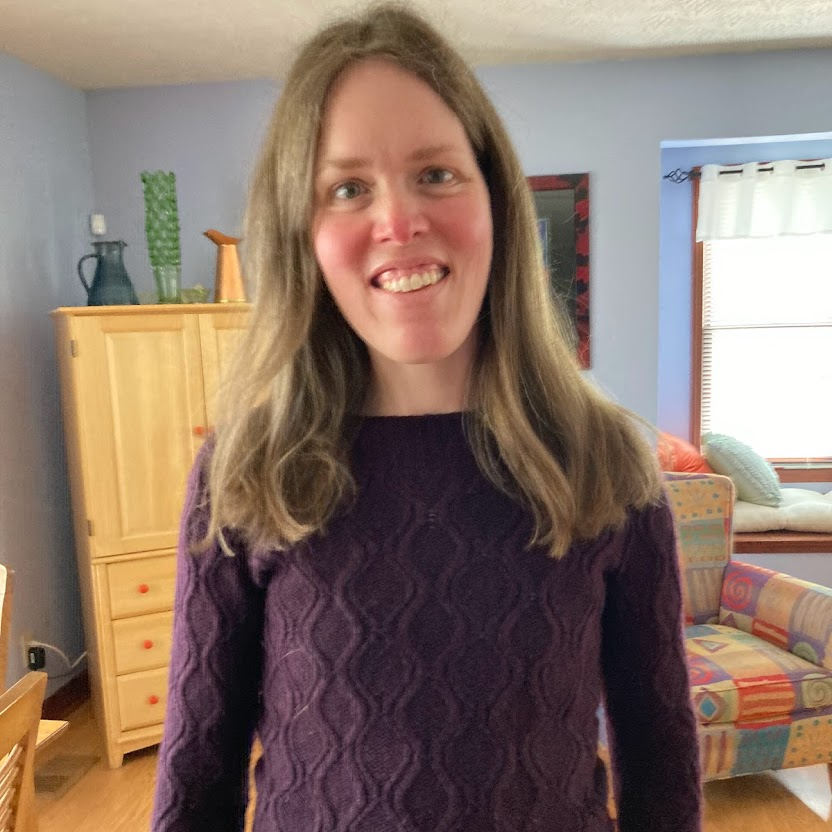
“When people’s basic needs are met, everything works better. It pays off morally. It pays off socially. And it pays off financially. That’s the world I want to live in—a world where everyone has a fair chance to thrive.”
Lacey Lyons, born two and a half months prematurely in Whites Creek, Tennessee, has been navigating the complexities of the health care system her entire life. The challenges began with her diagnoses of mild cerebral palsy and epilepsy resulting from her early birth. Thankfully, she’s always had access to world-class care at Vanderbilt University Medical Center (VUMC), but adulthood brought new battles — ones that tested her resilience and her belief in a just system.
“I’ve been a patient at Vanderbilt my whole life,” Lacey says. “But once I graduated college and started working, I found myself in a system that wasn’t built for someone like me — single, with a disability, and freelance writing. Back then, there was no Affordable Care Act (ACA), and getting access to health insurance felt like a cruel joke.”
Lacey graduated with a journalism degree in 2005, eager to build a career. But the barriers for someone with her medical needs were staggering. Without employer-based coverage, she had to rely on individual private insurance plans. The costs were suffocating.
“From 2005 until the ACA was fully implemented in Tennessee, I spent the first five years of my career essentially working for free,” she says. “I spent as much per month on prescription copays as my sister did on her mortgage. And I’m not even that expensive in terms of care. All I needed was catastrophic coverage and my seizure meds.”
Seizure control wasn’t just a medical necessity — it was a prerequisite for Lacey to hold a job and contribute to society. “I used to argue in my early advocacy work: ‘Give me ways to access meds and routine care, and I can and will hold down a job and pay into the economy. But I can’t do that unless I have full seizure control.’”
Things began to change with the passage of the ACA and her enrollment in Vanderbilt’s Medication Assistance Program (MAP). Funded through block grants, MAP determines eligibility based on income and provides free or low-cost medications to those who qualify.
“I can’t say enough good things about MAP,” Lacey says. “It reduces the burden of high prescription drug costs, especially for life-sustaining medications like seizure meds or heart meds. Before MAP, I spent so much mental energy just trying to fill my prescriptions. Going to the pharmacy every two weeks, arguing with staff, worrying about whether they’d have what I needed — it consumed me.”
Now, her medications are delivered to her door, and she pays just $16.66 a month for her ACA-backed Ambetter Silver Plan. Office visits and labs are about $30. “When I had gastroc recession surgery on my left heel in 2023, the surgery and ten weeks of outpatient physical therapy were fully covered. I didn’t think this level of care would ever be within reach for me.”
But for Lacey, the benefits of MAP and the ACA aren’t just about her own experience — they’re a blueprint for what could be. “If MAP has been this transformative for me, imagine what it could do for others across Tennessee if programs like this were available statewide. It’s not just a win for individuals. It’s better for their families, their communities, and the economy as a whole.”
Lacey knows that systemic change often comes in small steps, but she is adamant that those steps matter. “It seems cheaper — and more moral — to give people what they need to participate in society fully and with joy. It doesn’t help anyone if a person with a disability is using all their energy just to exist. That’s not healthy for them, their families, or the system they’re trying to live in.”
The potential for expanded drug coverage, whether through Medicaid expansion or broader reforms, is something she views as essential. “The seizure meds covered under older proposals wouldn’t help me — those are meds I’ve already tried, and they didn’t work. But if we expand the marketplace, bring more people into the system, and drive costs down, we create room for coverage that can accommodate people like me.”
Having navigated the health care maze herself, Lacey is determined to empower others. “If you’re just starting out, find a navigator who can guide you through the system. Learn the terminology. Don’t be afraid to ask for help. And remember: the flaws in the system aren’t a reflection of your value as a person.”
Her voice shakes slightly as she recalls her lowest moments. “I remember sitting in my car, crying after work. It felt like the system didn’t care if I lived or died. That’s a hard thing to face. But the truth is, your worth isn’t tied to how easy or hard it is to access care. Keep pushing. Advocate for yourself and others.”
For Lacey, the fight for equitable health care is deeply personal, but it’s also about a vision for the future. “When people’s basic needs are met, everything works better. It pays off morally. It pays off socially. And it pays off financially. That’s the world I want to live in—a world where everyone has a fair chance to thrive.”
Add your voice to help us continue to push for the best health and health care for all.
SHARE YOUR STORY